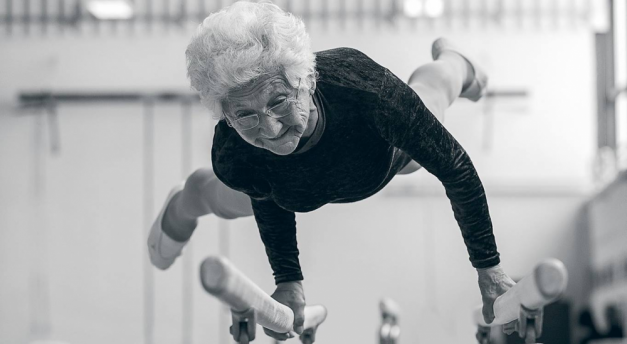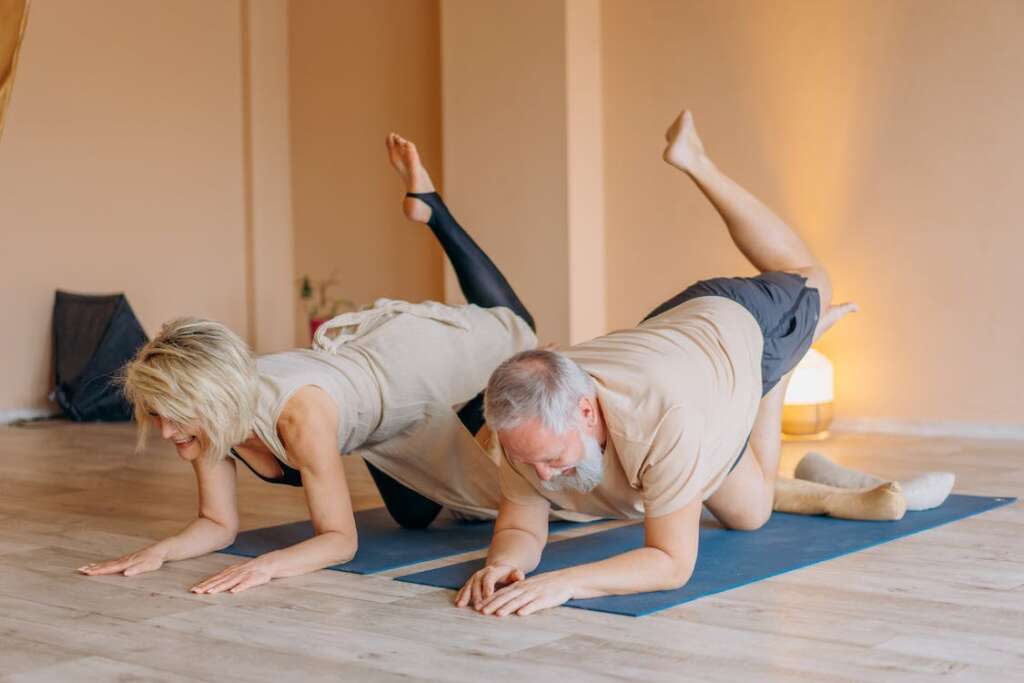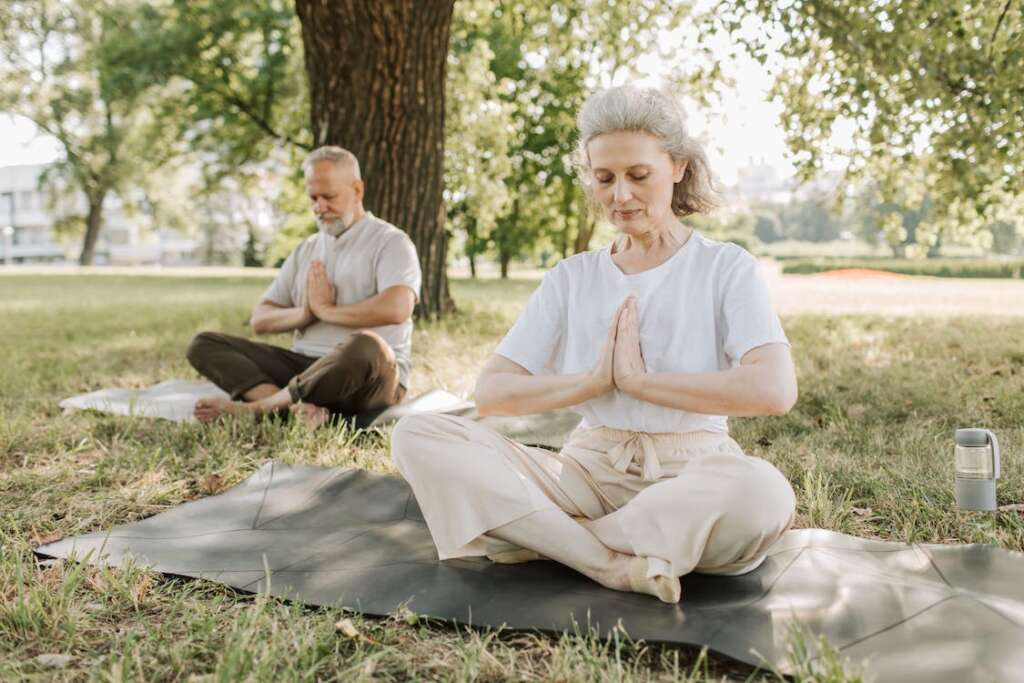As you age, staying fit and healthy becomes increasingly important. As your body is changing with time, it’s essential to adjust your lifestyle to ensure that the physical changes are not damaging your health.
Whether you want to stay strong and active or just maintain good health, there is no doubt that adopting a regular exercise routine and maintaining a balanced diet is crucial for keeping up wellness in old age.
At the ripe age of 93, Johanna Quaas has created history and reached heights only a few – if any – have ever dreamed of reaching.
Revered as the oldest gymnast in the world, her feat defies all odds and expectations; anyone who sets eyes upon her awe-inspiring performance cannot help but be utterly astonished.
In this blog post, we will look at this amazing elder athlete’s inspiring story, remarkable accomplishments, and lasting legacy that she left behind, and we’ll also explain why it’s so important to keep yourself physically fit as you get older.
Let’s Get Going:
Johanna Quaas Record That Will Put The Moon To The Shame
German gymnast Johanna Quaas (née Geißler) was born in Hohenmölsen on November 20, 1925. She is currently the oldest gymnast in existence.
She began gymnastics as a young age, competing for the first time in 1934. Her dream, as she put it, was to take part in the Olympics. Nevertheless, the start of World War Two altered her destiny.
Johanna Quaas completed her gymnastics coaching education in Stuttgart, Germany, in 1945. She then relocated to Weißenfels, where, due to the Allied Control Council’s ban on gymnastics, she began training in handball. This restriction was lifted, and she resumed gymnastics in 1947.
She enrolled at the University of Halle-Wittenberg in 1950. Thereafter, she worked as a coach trainer at the Institut für Körpererziehung. She wrote alongside her husband in the gymnastics bible Gerätturnen.
She attended the HSG Wissenschaft Halle for her training at this time. She began coaching gymnastics in 1961 at SC Chemie Halle, where her students included future Olympians Barbara Dix-Stolz and Christel Felgner-Wunder.
Quaas resumed training in 1982, at the age of 57, together with two companions who have since passed away. She has been a starter at every Deutsche Turnfeste since 1990 when Germany was reunited.
The Guinness Book of World Records recognized Quaas as the oldest gymnast in the world on September 13, 2012, and she has held that title ever since.
‘I do gymnastics to avoid being susceptible to falls and that is a good preventive tool,’ she said in an interview with The Straits Times.
How To Stay Fit And Healthy In Old Age? – Healthy Aging
Are you eager to stay fit and healthy like Johanna Quaas?
Listed below are the ways to stay healthy after your 60s and beyond:
1. Have A Balanced Diet
In addition to bolstering your immune system, a diet high in fruits, vegetables, and lean meats will help shield you from disease-causing viruses and bacteria in old age. Antioxidants can be found in abundance in plant foods. Antioxidants prevent cell death and disease by scavenging free radicals.
Also, you should limit your intake of fatty and sugary meals because they can weaken your immune system and cause internal inflammation.
Limit the amount of alcohol you consume as well if you want to stay healthy in old age.
Find out from your doctor how much alcohol you can safely consume each day or week.
2. Prioritize Workout
Doing regular exercise can help with a variety of health issues, including diabetes. And it can help you feel better emotionally, too. The brain benefits from a healthy body and a regular exercise routine after the 60s and 70s.
Most days, engage in 20–30 minutes of exercise if you want to stay fit after the 60s. The optimum form of exercise is a mix of cardio (walking, swimming) and strength training (weights).
One of the simplest exercises to begin is walking. Not all 30 minutes must be completed at once. Consider going for two 15-minute walks each day. Or go for three 10-minute walks each day.
Find something else to do if walking isn’t your thing. To relax, you could try gardening, dancing, fishing, Tai Chi, or yoga. You can reap health benefits from engaging in any physical activity you enjoy.
3. Relax & Recover
After you get sixty, you’ll begin to understand that you need to take more time to unwind. It’s not evidence of how well your body can adapt to its environment. It’s more of an admission that it will take some time for you to recover.
If you participate in sports, you might find that you need to pause a little more frequently on the sidelines. It’s possible that you’ll need to take more frequent daily breaks.
Recuperation and relaxation are essential components of maintaining health after your 60s and beyond.
Breakdowns happen when you strain your body or mind beyond its limits. The issue is that breakdowns at this age are more difficult to recover from.
It’s preferable to unwind now than to let later suffer from your overzealousness.







